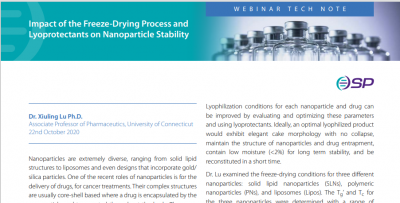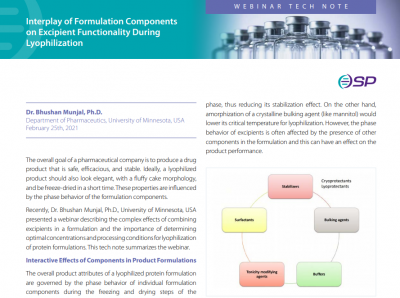Dr. Raman Bahal is awarded tenure and promotion to Associate Professor at University of Connecticut. CPPR Associate Director, Dr. Xiuling Lu, is promoted to Professor. Congratulations to all! Read more at https://today.uconn.edu/2022/05/2022-school-of-pharmacy-faculty-promotions/

CPPR Student, Ling Zhu, Receives Best Poster at ISLFD
Ling Zhu from Robin Bogner’s Lab at UConn won the best poster award at the International Society of Lyophilization/Freeze-Drying Chicago meeting in April. His poster reported on the CPPR project, Characterization of the Porous Structure of Freeze-Dried Cakes.
More Exciting Results from CPPR Researcher, Dr. Dana Moseson
Dana Moseson from Lynne Taylor’s group at Purdue published more results from their CPPR funded project. Learn more about Optimization of Amorphization Kinetics during Hot Melt Extrusion by Particle Engineering: An Experimental and Computational Study | Crystal Growth & Design (acs.org).

First Ever CPPR Steven Nail Emerging Researcher Award Goes to Shipra Malik
CPPR Student, Shipra Malik, from Dr. Raman Bahal’s lab at UConn was the recipient of the first ever CPPR Steven Nail Emerging Researcher Award for her 3-Minute Thesis Presentation and poster update of her ongoing project, Effect of Freeze Drying using Cryoprotectants on the stability of Nucleic Acid loaded PLGA nanoparticles.
Another Successful CPPR Meeting
In May, 65 faculty, industrial scientists, students and guests met to discuss research proposals and ongoing research on innovations in pharmaceutical processing of small and large molecular therapeutics. Steve Nail, one of the founders of CPPR, gave a very motivating keynote address focusing on the people who influenced his career and the pharmaceutical processing field.

Free Tech Note by CPPR Faculty, Xiuling Lu, Based on her SP Scientific Webinar
Free Tech Note by CPPR Faculty, Xiuling Lu, Based on her SP Scientific Webinar
SP Scientific, a CPPR company, is making available for free a tech note fc0b7561-8250-4b9e-92e9-a5150c4bcfb2.pdf (ctctusercontent.com)based on Dr. Xiuling Lu’s excellent webinar on the Freeze-Drying Nanoparticles.

CPPR Faculty, Na Li, Receives Prestigious PhRMA Foundation Grant
CPPR Faculty at University of Connecticut, Dr. Na Li, was awarded one of this year’s Research Starter Grants in Drug Delivery for her novel research in how the particle drifting effect enhances oral absorption of colloidal drug systems.

Dr. Tony Zhou Receives 2021 Young Investigator Award from Pharmaceutics Journal
Dr. Tony Zhou, Associate Professor of Industrial and Physical Pharmacy and CPPR Associate Site Director at Purdue, receives 2021 Young Investigator Award from the Pharmaceutics Journal. This award recognizes young researchers who have produced ground-breaking research and made a significant contribution to the advancement of pharmaceutics and biopharmaceutics.

Free Tech Note by CPPR Investigator, Dr. Bhushan Munjal, Based on his SP Scientific Webinar
SP Scientific, a CPPR company, is making available for free a tech note 0ca96f61-ab71-4bd7-976a-c6802f23d802.pdf (ctctusercontent.com) based on Dr. Munjal’s expert webinar on Formulation Components for Freeze-Drying.

Prof. Raj Sury, Director of the CPPR Minnesota Site, to be Honored with Dedicated Issue of Journal of Pharmaceutical Science
The January 2023 issue of JPharmSci will be dedicated to Raj Sury for his contributions to the understanding of solids and lyophilized formulations. Those interested in contributing to the issue should contact Dr. Seema Thakral (sthakral109@gmail.com).
